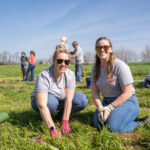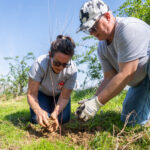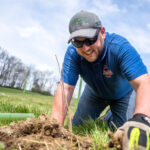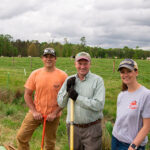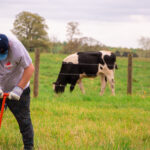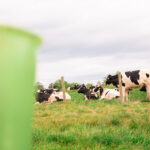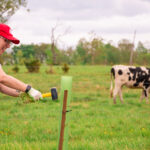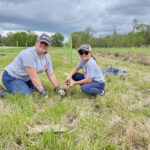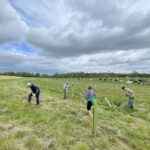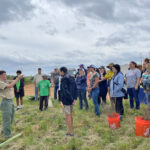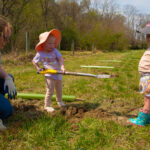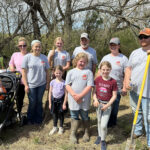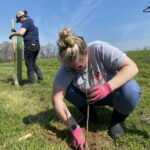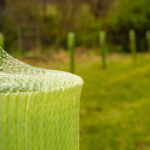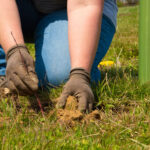
MDVA Members Steward Sustainable Milk
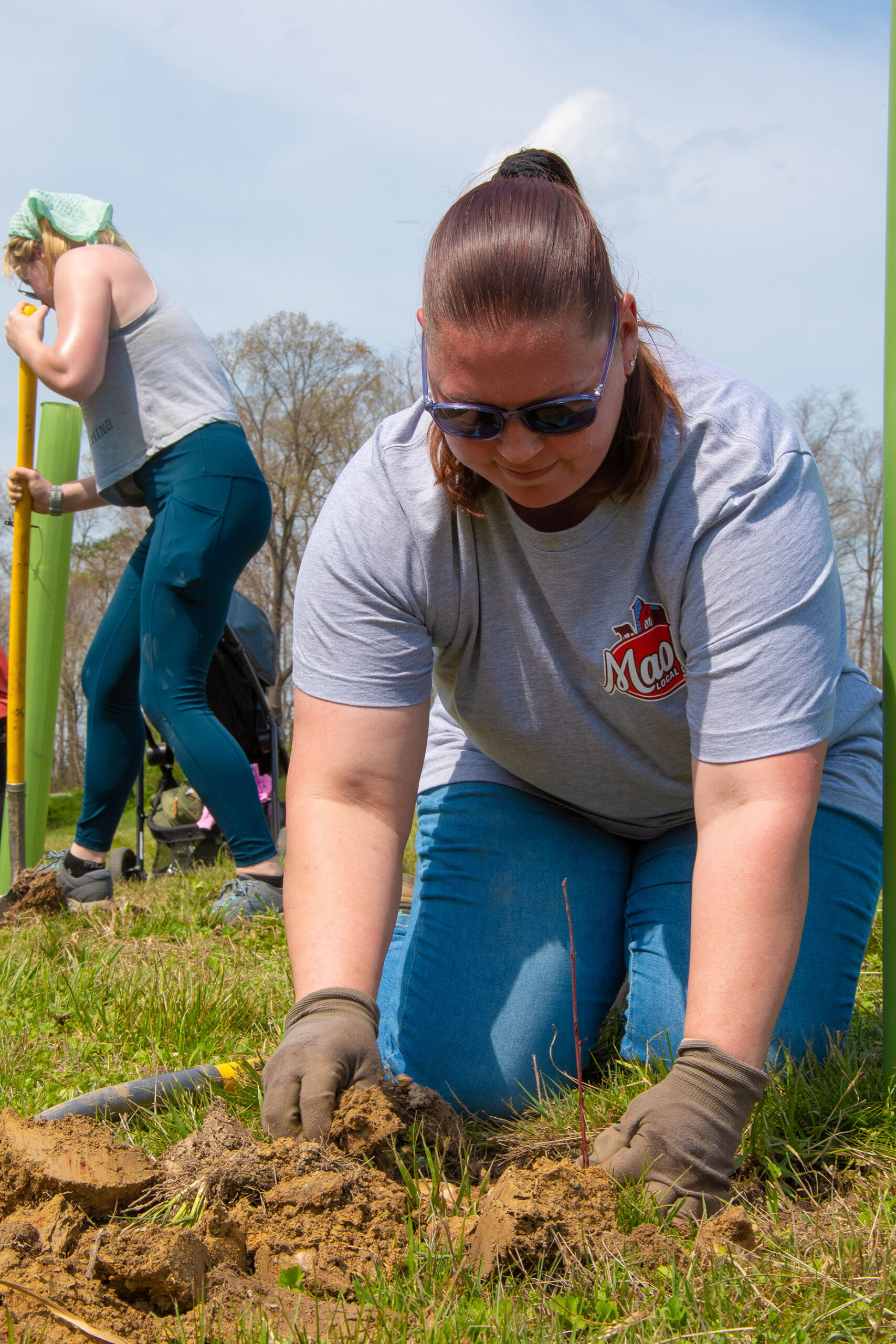
As the weather warms and the ground turns bright green with new growth Maryland & Virginia Milk Producers Cooperative Association (MDVA) farmers are hard at work being stewards of the planet. While this is a daily routine for most, there is one month each year that gives us all a chance to reflect on how we treat the Earth.
April is Earth Month; it is a time when people around the world come together to promote sustainability and take action to protect our planet. Thanks to increasingly modern and innovative dairy farming practices, the environmental impact of producing a gallon of milk requires 30% less water, 21% less land, and a 19% smaller carbon footprint than it did in 2007. MDVA farmers are seeking to further improve those numbers by stepping up to the plate and adopting 21st-century sustainability practices, and planting trees is just one of those.
Trees play a critical role in removing carbon dioxide from the atmosphere, storing carbon, and producing oxygen. In addition to their carbon sequestration abilities, trees can also provide many other benefits to dairy farms. For example, they can help to prevent soil erosion, provide shade for livestock, and create habitats for wildlife. Trees can also improve the overall aesthetic of the farm, making it a more pleasant place to work and visit.
J Team Dairy and Cool Lawn Farm are two MDVA farms that have recently shown their commitment to sustainability by hosting tree-planting initiatives on their farms.
On April 5th, we joined up with our partners at Alliance for the Chesapeake Bay (Alliance) and Piedmont Environmental Council (PEC) for a tree planting at J Team Dairy to create a forested riparian buffer. This event saw 220 trees planted on approximately one acre along a local stream. While tiny today, these native trees will grow in the coming years and their deep roots will become filters preventing nutrients and sediment from entering the Rappahannock River Watershed, a feeder waterway to the Chesapeake Bay.
We celebrated Earth Day with our partners at the Alliance and Giant Food at Cool Lawn Farm owned by father-son duo, Ken and Ben Smith, in Remington, Virginia. Volunteers from our three organizations and even a local FFA chapter helped plant nearly 900 trees on three acres along the banks of a running stream on the farm.

Tree plantings are the easiest, lowest cost, and most beneficial sustainability practice that MDVA farms put in place when working on a larger sustainability plan. Both J Team Dairy and Cool Lawn Farm will be using various funding sources to complete modernized manure storage and bedded pack barn projects – the cherry on top to achieving a more sustainable farm (with perks to animal health and family lifestyle, too!).
Our Earth Month activities aren’t done yet – and you can join in on the fun. This Arbor Day (April 28) Tulip Pond Farm, near Frederick, Maryland, will host yet another tree planting event. By signing up, you will have the opportunity to make a tangible difference in your local community by planting trees. Not only will you be doing your part to help the planet, but you’ll also have a chance to connect with like-minded individuals and have fun in the great outdoors. Don’t miss out on this opportunity to make a difference – sign up for our tree-planting event today!
If you’re looking for tips on how to plant trees of your own, here are a few things to keep in mind:
Choose the right tree species for your location: Make sure you choose trees that are suited to your local climate and soil conditions. This will help ensure that the trees thrive and grow strong. Your state’s cooperative extension department or local nursery might be able to help.
Prepare the planting site: Before planting, make sure you clear the area of any debris or weeds. You may also want to add some compost or other organic matter to the soil to help improve its quality.
Plant the tree: Dig a hole that is slightly wider than the tree’s root ball, but not too deep. Place the tree in the hole and backfill it with soil, making sure the tree is planted at the same depth it was in its container.
Water and mulch: After planting, give the tree a good drink of water and add a layer of mulch around the base of the tree. This will help retain moisture and suppress weeds.
Remember to also care for your trees after planting by providing regular watering, pruning, and fertilization as needed.
Tree planting is a simple but powerful way to promote sustainability and combat climate change. We planted 4000 trees last year and have an excellent start on breaking that record in 2023. With our farmers’ dedication, and a little support from others in our supply chain, we’ll achieve our 2050 environmental goals.

